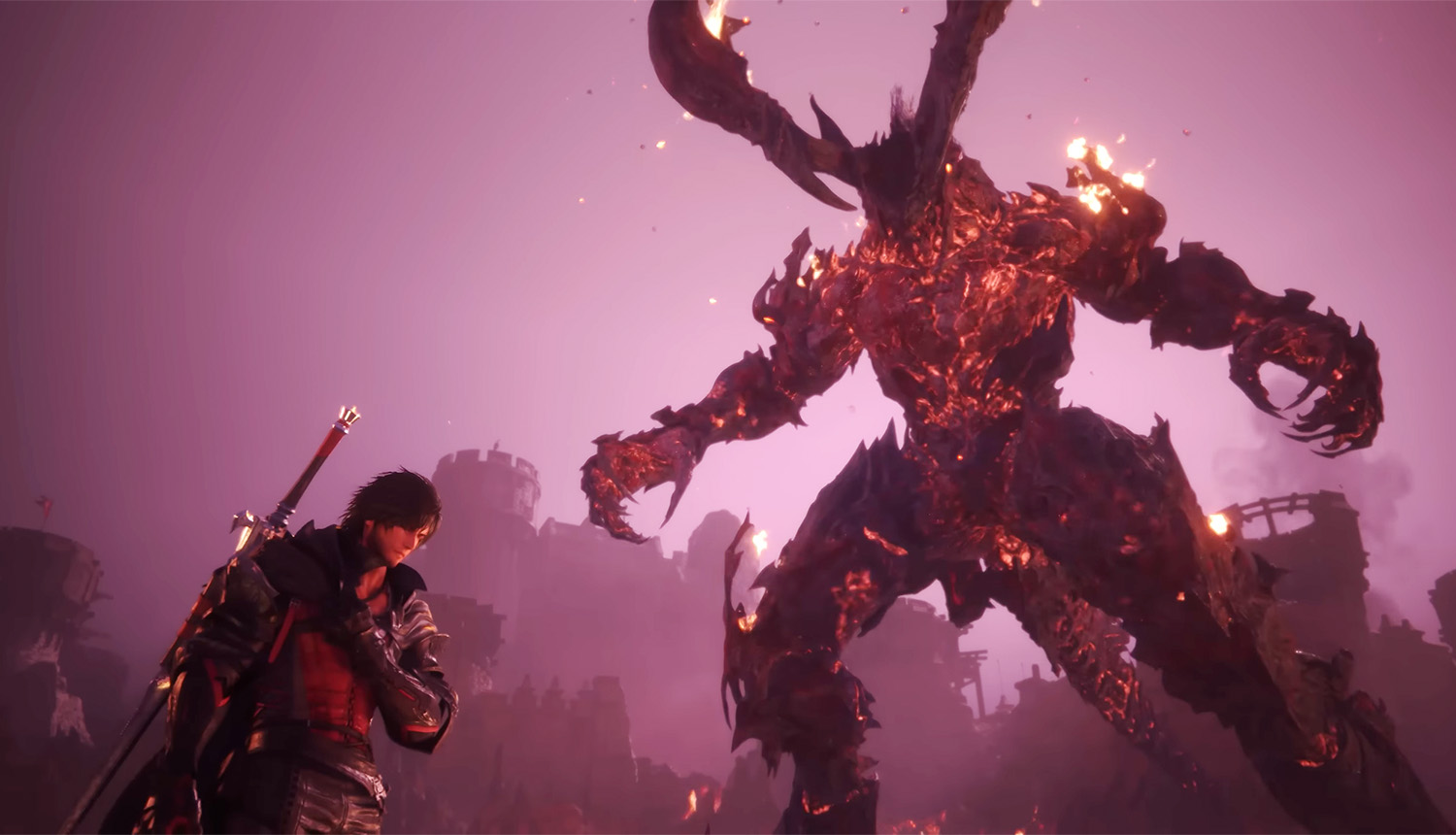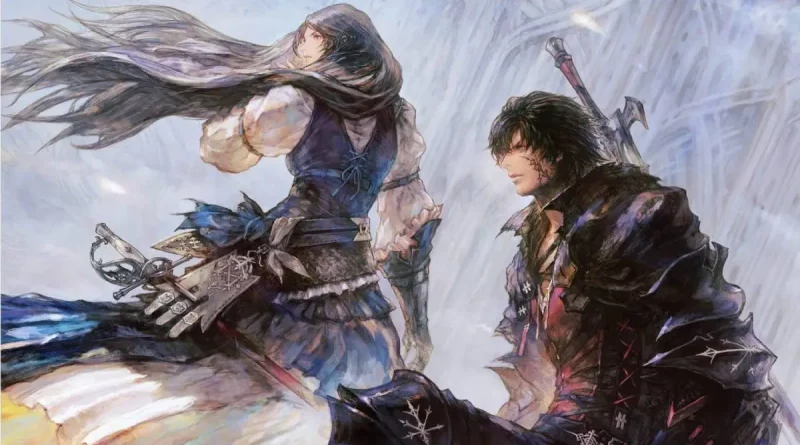Why Final Fantasy 16 Is My Game Of The Year
(SPOILERS AHEAD for Final Fantasy 16)
“I have killed the monster…and become an outlaw.”
These words are the beating heart of Final Fantasy 16, one of 2023’s best releases in a year with an unprecedented number of outstanding titles. The Game Awards have come and gone, reminding us of some of the industry’s best. Tears of the Kingdom, Alan Wake 2, and Baldur’s Gate 3–2023’s game of the year. I’m not here to convince you that Final Fantasy 16 is better than these games, only that it spoke to me in a way that most games have not in a long, long time. This game has become an underdog against these titans, but Final Fantasy 16 is a game where titans go to die. Let me tell you why it’s my personal game of the year.
Far and away, Final Fantasy 16’s best feature is its world and story. Don’t believe me? Ask the Game Awards. Although it lost to Alan Wake 2, this game was nominated for Best Narrative, shoulder to shoulder with many of the nominees in the Game of the Year category.
Valisthea, the world of FF16, is a brutal, dark fantasy setting rife with oppression, occupation and death. Players bear witness to an apocalypse in motion. This is a universe with many proper nouns: Dominants. Eikons. Bearers. Mothercrystals. Aether. Blight. All of these elements come together to form a masterclass in world-building.
The Mothercrystals, mountain-sized crystalline structures, are the pillars Valisthea is built upon. They suck the very earth of Aether, the conduit for magic. But only some humans are born with the aptitude for magic, and these are known as Bearers, a slave class that are both integral to Valithea’s societies yet treated as property. However, the real truth is that Mothercrystals are killing the world by draining its Aether, bringing the Blight, a wave of decay slowly killing Valisthea’s landscape. And don’t forget the Dominants, living avatars for Eikons, god-like beings of elemental power who act as living nuclear weapons for the nations of Valisthea.

It’s a lot.
The player gets to tour this world and gets to know its warring nations and various factions rather well. The game goes to great lengths to make this information readily available. FF16 introduces a feature that every game should have: Real Time Lore. RTL is a feature that, when the middle pad of the PS5 controller is pressed in the pause screen, presents a flowchart with all of the relevant characters, events and locations up to that point in the story. Each entry is regularly updated so that the player is not confused by the twists and turn of the story.
This, put simply, rules.
Final Fantasy 16 is a political game – not only in the way that it’s concerned with the politics of the realm but also the message it possesses as a piece of art. This is seen in the transformation of the protagonist, Clive Rosfield.
Clive is one of the best realized protagonists I’ve ever had the pleasure of playing as. His main struggle is that of guilt, particularly for the actions he’s committed as the second Eikon of Fire, Ifrit. When his family is slaughtered, Clive’s brother Joshua, the Dominant of Phoenix, transforms into the great fire bird, and Clive, his mind detached from his body, watches Ifrit attack and kill Phoenix right in front of him. Tufts of glowing feathers are wet with blood as Ifrit’s clawed hands keep pounding on the bird’s neck, all the while Clive screams out for his little brother, pledging to find his killer.
This is the sequence that sold me on the game. While playing the free demo, I was impressed by the dark atmosphere and the general “they went there” nature of the violence.
After this experience, Clive believes Joshua dead and is scooped up by the Empire, branded as a Bearer and thrown into the rank and file of their army as a grunt. From this point forward, Clive is defined by a thirst for vengeance. He watched Ifrit kill Joshua and he’s borderline suicidal in his quest to avenge him. It’s a long, difficult journey for us and Clive as he accepts that he is Ifrit, that blood is on his hands and ours.
The writing is careful to make Clive experience what it’s like being a Bearer. He is not some high-class noble cosplaying oppression; he’s had everything taken from him by the corrupt system by which the world is governed. In fact, he may be its chief victim.
He eventually deserts and meets up with a childhood friend Jill, the Dominant of the ice queen Shiva, and Cid, and Dominant himself and leader of the Hideaway, an Underground Railroad for Bearers. Cid imparts the political compass of the game to Clive. Through Cid, Clive’s quest becomes one of revolution instead of revenge. After Cid’s death, it’s Clive who inherits his mission to destroy the Mother Crystals. He and Jill kill the monster inside by pledging to atone for the lives they’ve taken as Eikons, and they become outlaws in order to what’s necessary to bring Valisthea back from the brink.
The morals are messy, but Cid would rather be known as an outlaw, the villain of Valisthea’s history, if it meant that the world would be saved. That is the guiding principle of the story at large. It shows the bloody, ugly work that a revolution entails. Our heroes will make the world far worse before they make it better, but the game accepts this path of violence and treats it with maturity. Maturity is the word that describes Final Fantasy 16 perfectly. It’s bloody, sexy, dark and painful, but it never relishes in the cruelty it depicts. It shows an oppressed community fighting for freedom in a way that is not glamorous or romantic.

The story is what keeps me coming back, but the game’s other features come together to create the complete, cohesive experience that Final Fantasy 16 is.
In terms of gameplay, Clive has the unique ability to absorb the powers of other Dominants, which expands the player’s suite of combat capabilities. FF16 removes traditional hallmarks of the JRPG genre, like inventory management and equipment customization, to deliver a more streamlined and action oriented experience that resembles Devil May Cry rather than the hybrid style Final Fantasy 7 Remake. The emphasis on action shows itself in the blood that remains on Clive and his companions after battles and the guttural cries that Ben Starr (Clive’s voice actor) lets out as he unleashes his Eikonic abilities.
The gameplay cannot be mentioned without remarking on the boss battles. Clashes between Eikons result in cataclysmic damage. Ifrit, who is roughly Godzilla-sized, is rendered tiny by other Eikons such as the Earth elemental Titan and the laser dragon Bahamut. The scale of these battles brings to mind games like Asura’s Wrath or Metal Gear Rising: Revengeance. The power of the PS5 is on full display. Watching these god-like beings clash is accompanied by boundary pushing graphics and otherworldly sound design that makes every tectonic blow sound like it’s cracking the Earth in half. And while the boss battles can be so grand they become silly, the scale of the destruction is never lost on the player. The narrative always orients the audience to recall the lives taken or destroyed by the devastation wrought.

FF16 didn’t take home the game award for Best Narrative, it did win a much deserved Best Score and Music. The main battle theme, “No Risk, No Reward“, always gets my blood pumping no matter how many times I hear it. “My Lady”, no doubt in reference to Jill, is a melancholic piano ballad with every note shimmering like a dagger of ice, perfect for the pained Dominant of Shiva. “Titan Lost” backgrounds all most all 5 phases of Titan’s boss fight, beginning with an old school hip-hop flavored beat, working all the way up to industrial techno and then coming back around to epic fantasy orchestration and chanting. My favorite is “Indomitable”, another beautiful piano track that also incorporates notes from the iconic Final Fantasy theme.
When the end of the game came, I put down the controller and let it all wash over me. I sat at the end for a long time, and then…I didn’t think about the game until the Game Awards rolled around. Then I asked myself why that was. The ending is so complete, so satisfying, that I could move on from the game for a while and simply enjoy the time I spent with it. Live service models and endless cycles of content have made video game endings all too eager to leave the door open, but Final Fantasy 16 leaves you content with the hope that you and Clive have done the work and delivered Valisthea from its beautiful, awful self.

